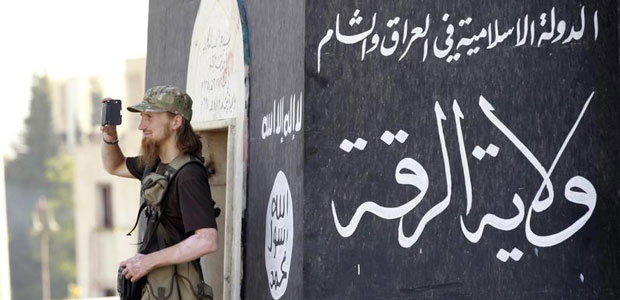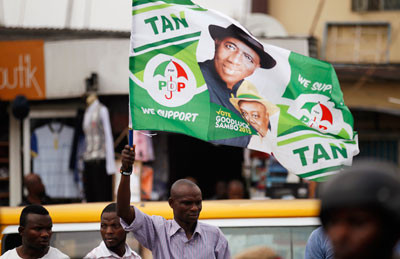CPJ urges Nigerian president to prioritize press freedom
President Buhari: The Committee to Protect Journalists is writing to congratulate you on your recent victory in Nigeria’s presidential election. As Nigeria prepares to enter a new chapter in its history, we urge you and your administration to take steps to ensure that journalists are able to work freely and openly in the country without fear of reprisal of any form.

Broadcasting murder: Militants use media for deadly purpose
News of the August 19, 2014, murder of journalist James Foley broke not in the media but instead on Twitter. News organizations faced the agonizing questions of how to report on the killing and what portions of the video to show. If a group or individual commits an act of violence, and then films it,…
Nigerian soldiers confine Al-Jazeera journalists to hotel
Abuja, Nigeria, March 26, 2015–Nigerian military authorities on Tuesday confined two Al-Jazeera journalists to their hotel room and have forbidden them from leaving, according to a statement published on Wednesday by the Nigerian Defense Headquarters and both journalists who spoke to CPJ. The journalists were covering a story on military activities in the area as…
Nigeria targets independent newspapers
Nigerian authorities have been waging widespread attacks on nearly a dozen independent newspapers under the cover of fighting terrorism. By last weekend, no fewer than 10 newspapers had their operations nationwide disrupted, leading to the loss of hundreds of thousands of newspaper sales.
Nigerian military seizes leading newspapers
New York, June 6, 2014–The Nigerian military this morning confiscated or destroyed copies of at least four leading newspapers, Punch, Leadership, Vanguard, and The Nation, around the country, according to news reports. A defense official claimed that authorities were looking for “materials with grave security implications,” the reports said.
Journalists targeted by both sides in Nigeria’s war on terror
The struggle between Nigerian authorities and militant extremist group Boko Haram was recently thrust into the global spotlight with the abduction of nearly 300 schoolgirls, but journalists in the country have been squeezed between the two sides for years.
Pressure on Journalists Rises Along With Africa’s Prospects
After a decade of unprecedented growth and development, the insistence on positive news remains a significant threat to press freedom in sub-Saharan Africa. By Mohamed Keita A newspaper displayed in the Ikoyi district of Lagos on September 30, 2013, tells of a deadly attack on a college in northeast Nigeria by suspected Boko Haram militants.…
Nigerian journalists barred, threatened for covering trial
Armed state security agents on October 24, 2013, in the commercial capital, Lagos, barred journalists from covering the arraignment of 17 suspected members of the Boko Haram militant group on charges of conspiracy to commit terrorism, illegal possession of firearms, and being members of a proscribed organization, according to news reports.
